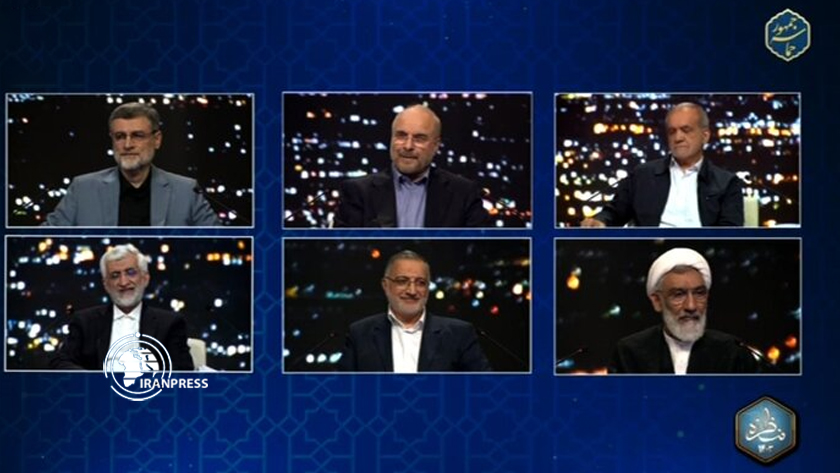In the enthralling milieu of Iranian politics, presidential candidate Mohammad Bagher Ghalibaf emphasized the vitality of economic growth and citizens’ livelihoods during a recent debate, setting the tone for a wide-ranging discussion on the nation’s future.
Ghalibaf advocated for inflation control via public participation, a step towards realizing the populace’s rights. His approach lends credence to Robert Dahl’s concept of “polyarchal democracy,” focusing on participatory leadership involving all sections of society. His campaign concentrates particularly on the upliftment of the middle and lower economic classes, including workers, clerks, and aid-seekers.
Taking a holistic view, the candidate commented on the importance of labor culture, production culture, and consumption culture in managing the country. He urged the next administration to harness the expertise of scholars to increase productivity, a crucial factor for economic growth. While analyzing the country’s energy sector, he criticized the wastage of resources, including flare gas, the energy of which is underutilized.
Significantly, Ghalibaf cited the Moscow-centered BRICS alliance and the Shanghai Cooperation Organization as structures that could enhance Iran’s economic growth and productivity. This is a nod to Kenneth Waltz’s ‘Structural Realism’ theory that international structures shape state behavior.
The debate also involved candidate Masoud Pezeskian, who stressed unity and avoiding partisan behaviors in governance. He laid emphasis on the feasibility of economic plans and the need for a predictable economic situation to promote investment. Pezeskian held the view that foreign investment and exports are integral for economic growth, echoing the ‘Liberalism’ theory of international political economy that encourages openness to foreign trade and investment.
Most notably, Pezeskian highlighted the misfortunes brought by the sanctions on Iran, a sentiment echoed by fellow candidates like Saeed Jalili and Alireza Zakani. Jalili, promising a “world of opportunities” for Iran, advocated for sovereign control over the national currency, the Rial, to curb inflation. Zakani, on the other hand, stressed on Iran’s economic independence through de-dollarization and the implementation of a knowledge-based production system.
Despite the shared sentiments on the burden of sanctions, Mostafa Pour-Mohammadi offered a different perspective by highlighting self-imposed sanctions as equally detrimental. Pour-Mohammadi’s stance echoed the elementary ‘Mercantilism’ view, arguing for national unity, trust, and a resistive economic strategy, reiterating the idea of a government as a symbol of nationhood rather than merely a service-provider.
Meanwhile, Amir-Hossein Ghazizadeh Hashemi emphasized that cultural and economic policies must be directed towards people-centric production and investment. He added that the potential for technological advancement through knowledge-based production should be capitalized on to foster competitive growth.
The debate and its recurring themes vividly showcase various elements of international political economy theories and governance styles. As Election Day looms, it remains to be seen what impact these discussions will have on Iran and its long history of political and economic maneuvers.
